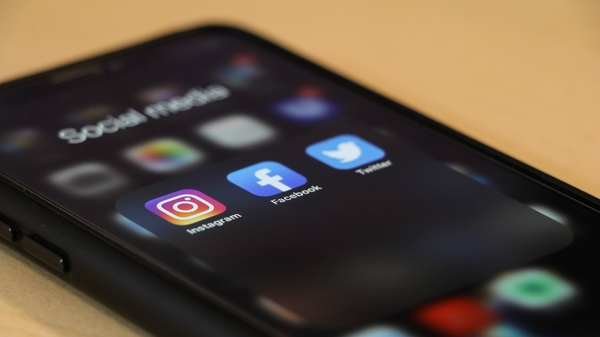Breaking up Big Tech with a decentralised internet for the future

“…companies that once were scrappy, underdog startups that challenged the status quo have become the kinds of monopolies we last saw in the era of oil barons and railroad tycoons”
Democratic Report On Investigation Of Competition In Digital Markets
Privacy is a rare commodity on the internet. Many have been unhappy with how ‘Big Tech’ giants such as Google and Facebook have used their data, with Facebook being involved in numerous scandals over the last ten years. When combining the major tech companies: Facebook, Google, Netflix, Amazon, Microsoft and Apple, over 40% of the world’s internet activity is spent with these giants.
When you break down the internet into different sections, you realise just how much dominance these companies have. For example, in the US, Amazon owns over 50 % of the e-commerce market share. Worldwide, Google owns an 87% share of the search engine market. Their dominance on the internet has led to the UK Competition and Markets Authority to intervene and set out new rules tailored to each tech giant.
What is a decentralised internet?
As normal as having Big Tech companies and their products in our lives is, this is not how the internet was meant to be. It was built to be decentralised. No owners or big players, but a balance of power that is shared by everyone on the internet. No one owns the internet, but we rely on centralised Big Tech companies to provide us with social media, emails, news and information; and have to trust them with our data. The fact that everyone’s data is in the hands of these Big Tech companies can make us all vulnerable to hacks.
A truly decentralised internet would be very different to the one we experience now. We all have some level of control over our data on the internet, but it’s very easy to be oblivious to it by always just accepting cookies and privacy policies without reading them. A decentralised internet would mean only we can read our data.
You’re probably tired by now of seeing the same cookie message on every website. Cookies are small pieces of data that are downloaded to your device when you use a site. As you continue to use that site, the website can keep referring to the cookies stored, and this can improve your experience. When you revisit the site, the site can look for cookies installed on your device to essentially allow you to pick up where you last left off. For e-commerce and online shopping, cookies can be really important. When you add an item to your cart, you’re often creating a cookie that stores your order details.
The problems and paranoia arise with ‘third-party’ cookies. Major companies like Google and Facebook can look at the cookies stored on your device to build up a profile of you and hit you with those ultra-personalised creepy ads that go on to make them so much money. A decentralised internet might just limit these powers.
How would a decentralised internet work?
Because we’ve come to rely so heavily on Big Tech companies, many of our communications and data are handled through their servers (computers that perform specific tasks). When you send a WhatsApp message, your message is encrypted and sent through Facebook’s servers to the intended recipient. When you create and collaborate on a Google Docs projects, each word you type is sent to Google’s servers to store.
A decentralised web might use ‘peer-to-peer’ connectivity. Each computer connected to the internet would be used to provide services to everybody. Any data you save or upload to the internet would be encrypted and scrambled over a network of computers that can’t read the data.
Currently, each website URL points your browser to a specific server location where the website files are stored. This has helped fuel the monopolisation of the internet because whoever has the most servers can essentially have the most power over the internet as it allows them to host more websites, apps and store more data. The decentralised web may have links that retrieve information based on the content, rather than the location.
Think of it like this… Each time you visit a website now, your browser uses the URL provided to find the website’s information which is stored on a specific server. It then stores this information in a temporary location and turns this information into a website. Once you go off the website, the information is deleted from that temporary location.
With a ‘peer to peer’ decentralised web, each time you use a URL, your browser will connect to a bunch of other computers who have also accessed that URL and download the information from them. In the same way, your browser turns this downloaded information in to a website that you can use. Other computers using that URL may then download the website information from your computer.
Blockchain
Blockchain is defined as “a global online database that anyone with an internet connection can use, but it doesn’t belong to anyone”. Blockchain is at the forefront of decentralised web technology. It was initially used for digital currency transactions such as Bitcoin, but the same technology has been used for many new decentralised applications. It provides a secure way of sending and receiving data in a way that no one else on the internet can read. Because nobody owns the applications, there isn’t a single location where the data could be stored and read by a third party such as Facebook or Google.
A fully decentralised web could run off similar technology to Blockchain. Decentralised applications would use the Blockchain online database, and all of your data would be encrypted and stored on this database. For example, a decentralised version of Facebook would store all of your data and posts on the Blockchain database, rather than on servers at their own headquarters.
Since nobody owns the database, the data is stored over the whole network rather than at a specific location. Each person using this database would have their own unique long password that could be used as an encryption key for their data. This would mean that everyone using the web would have one long password to access all the decentralised apps, and the apps individually may not need to ask for a password.
Is there really anything wrong with the current internet?
The Big Tech companies have brought us so much and they have such dominance for a reason. They’ve established for themselves huge amounts of resources which allow them to develop the best tech and compete in various different markets. They are the best innovators and there’s no denying that having them around has given us huge amounts of convenience. But there’s also a case to be made about whether or not they stifle their competition.
This is something Google have come under heavy criticism for in recent years, having established such a huge dominance in search and digital marketing. Google made around $135bn in 2019 from ads. This makes up most of their revenue and yet Google weren’t even the first and best innovators in digital advertising. In the past two decades, Google has acquired multiple different ad vendors, including DoubleClick in 2007. So did they buy their way to the top? There have been many criticisms that Big Tech firms ‘supercharge’ their growth and eliminate future competitions by acquiring start-ups and small companies with innovations.
A report published by Democratic lawmakers compiled 16 months’ worth of investigation to conclude and accuse Google, Amazon, Facebook and Apple of having ‘monopoly power’ and using ‘anti-competitive tactics’ to establish this.The report also stated:
“companies that once were scrappy, underdog startups that challenged the status quo have become the kinds of monopolies we last saw in the era of oil barons and railroad tycoons”
- Facebook have ‘monopoly power’ because of ruthless acquisitions. The report states that their acquisition of Instagram was a blatant attempt to “neutralize a nascent competitive threat.”
- Amazon are accused of unfair treatment to third party sellers and prioritising its own products in search results. They were also criticised for their selling charges.
- Apple are accused of excluding rivals from their App store and favouring their own apps.
The report suggested that new laws should be put in place to make it more difficult for the Big Tech companies to complete acquisitions.
Is life better with Big Tech companies?
Despite all of the evidence compiled in the Democrats’ report about Big Tech, there is one key argument that we need to have before passing judgement. Do Big Tech companies do more good than bad? Big Tech companies have more power than any other when it comes to combating Earth’s greatest issues.
These companies have invested huge amounts into humanitarian and societal projects. Take Microsoft’s AI For Good, for example. Microsoft have provided funding and technological infrastructure for countless projects for climate change, healthcare and humanitarian action. Google’s subsidiary google.org fund around £160M per year to solve humanitarian issues and provide support towards marginalised communities. Regardless of how much each company makes in profits, they each make some sizeable contributions to help humanitarian and environmental efforts.
Decentralised web, more like dark web?
Having no internet censorship or governance could prove to be a huge issue. There would be no way to crack down on online offences such as misinformation, cyber bullying or harassment. A crime or terrorist group could potentially use the internet easily and without having a central place where all of the data can be accessed, it becomes much more difficult to monitor. Since all of their illegal data and media is completely encrypted, it can’t be read by anyone and they can store it and share it at will. There is an argument that this wouldn’t be a new problem, however, as there are many hidden criminal networks on the web using encryption to hide behind their data.
Sign up to recieve our newsletters
Don't miss out on our latest content!
Recent posts

Pramod Kumar | 2022-03-04
How Are Investments in Genomics Driving Research Projects?
Science, Healthcare, Business | 4 min read

Dillon Lad | 2021-07-10
4 ways we're destroying the environment without even realising
Environment | 4 min read

Dillon Lad | 2021-04-26
The science behind The Matrix: can we power the world with our own mind and bodies?
Technology, Science, Film | 4 min read


Dillon Lad | 2020-11-30
The shocking behavioural psychology and design behind the world's social media addiction
Technology, Healthcare | 4 min read